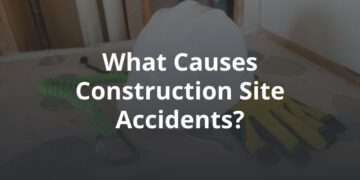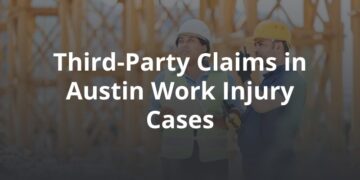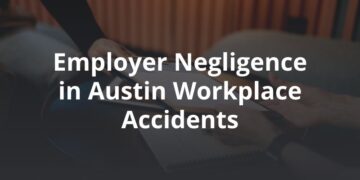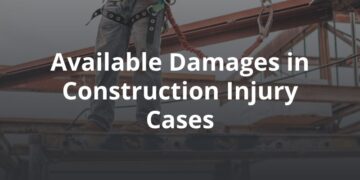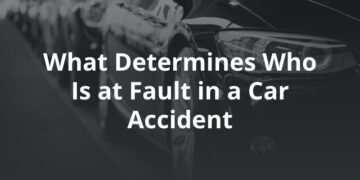Standing basically means the capability to file a lawsuit against another party. Texas law requires that a real controversy be present between the parties in the lawsuit. Additionally, Texas law also requires that the claimant’s particular injury is distinct from that of an injury of the general public.
Generally, a claimant who has been injured in a car accident will have standing for their cause of action. Likewise, a claimant who has been injured due to negligent hiring by an employer will have standing for their cause of action.
The 3 Elements of Standing
Standing includes the following three (3) elements: (1) Injury in Fact; (2) Causation; and (3) Redressability. If a claimant can establish these three elements in its cause of action, the claimant generally will have the right to bring that cause of action against the other party. Each of these elements will be further discussed in detail below:
Injury in Fact: Did the Claimant Suffer Harm?
Under this first element for standing, the claimant must establish that the injury is (1) actual and (2) real. Additionally, the injury to the claimant can either be physical (such as a broken leg, back, or arm) or monetary (such as lost wages or damage to property).
In order for the injury to be real, a claimant must be able to prove the injury by the evidence it intends to provide. For an injury to be accepted by a court as actual, an injury cannot be merely hypothetical or a “what-if” scenario. Neither will a risk of injury to the claimant satisfy the court’s requirement for “actual.” Furthermore, the injury must have occurred prior to the filing of the claimant’s cause of action.
Causation: Did the Other Party’s Action or Inaction Cause That Harm?
Under the second element, a court will look to see if there is a connection between the claimant’s injury (or injuries) and the other party’s action(s) (or failure to act). In other words, a court will ask: Would the claimant have suffered its injuries if not for the other party’s conduct (this is usually termed as the “but for” test)?
If there is no connection between the injury and the action/inaction present, the causation element will not be satisfied, and the claimant may not have the standing to bring its claim.
Redressability: Can the Claimant Be Compensated for the Harm They’ve Suffered?
Under the third and final element for standing, a court will look to see if it can do anything to help relieve the injury caused, so long as that relief has been sought by the claimant. A claimant may ask for equitable relief (i.e., a court to undo the action taken or stop an action from happening) or monetary relief by seeking either economic or non-economic damages.
Economic damages may include:
- Past, present, or future medical expenses;
- Past, present, or future lost wages, commission, bonuses, or other income; or
- Expenses due to the cost of personal or nursing home care.
Non-economic damages may include:
- Scarring or disfigurement;
- Loss of enjoyment or quality of life; or
- Mental anguish or emotional distress.
In either case, if the jury determines that the defendant is liable for the claimant’s injuries, the jury will determine the value of those economic and/or non-economic damages.
Exceptions and Limitations of Standing
As with any legal issue, there are exceptions and limitations of standing. For example, a claimant may satisfy all three elements described above but still not be capable of filing a cause of action themself, or a claimant may be prohibited or limited by statute or case law from bringing such a claim.
An exception to standing would be if a person were to meet all of the above elements but have a mental deficiency that would prevent that person from being able to make decisions for themself. In a wrongful death claim, a claimant would not have standing to bring such a claim if they were not a close relative of the injured party. Additionally, taxpayers will generally fail to prove standing on a claim regarding government decision-making.
Contact Our Personal Injury Law Firm in Austin, TX
If you’ve been injured in an accident in Austin and need legal help, contact our Austin personal injury lawyers at FVF Law to schedule a free consultation with an Austin car accident lawyer.
FVF Law Firm – Injury & Wrongful Death Lawyers
3101 Bee Caves Rd #301, Austin, TX 78746, United States
(512) 982-9328
